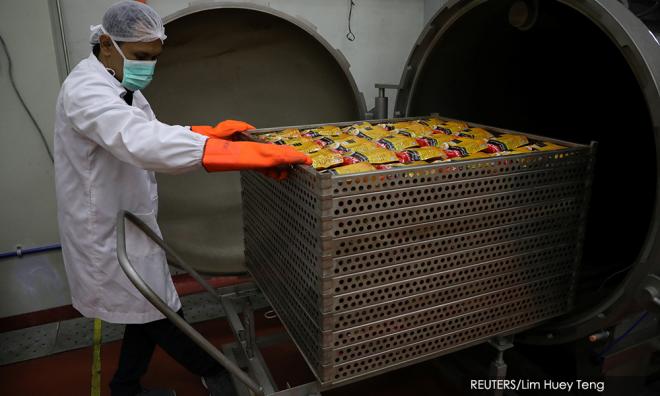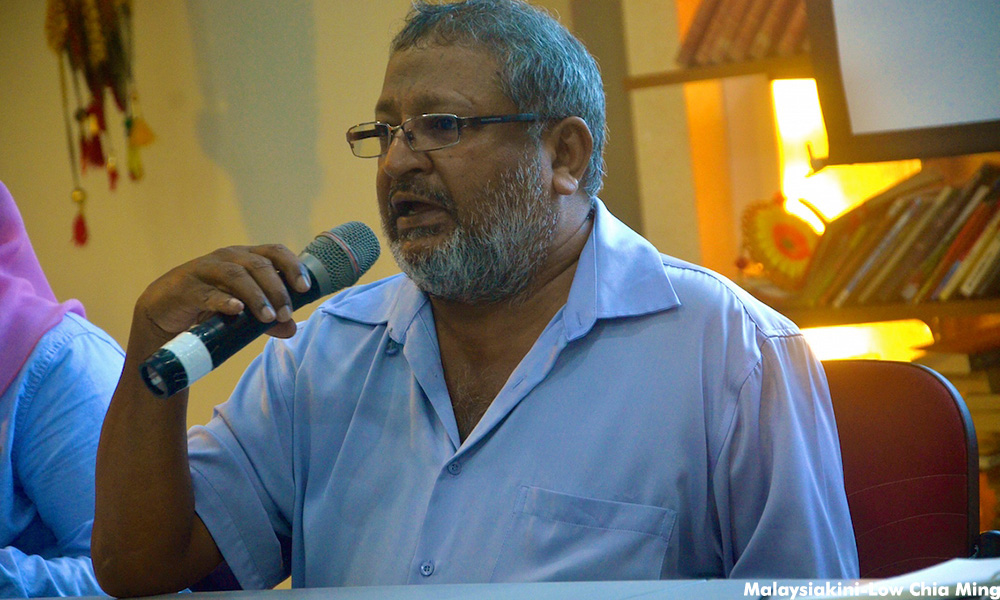
CORONAVIRUS | Penang unionists have expressed concerns over the Ministry Of International Trade And Industry (Miti)'s decision to grant an exemption to various manufacturing companies to recommence operation with conditions attached during the movement control order.
Chief Minister Chow Kon Yeow and state investment agency Invest Penang have said they were complying to Miti's decision to allow industries, including factories stated in the "essential" category, to operate at a minimal level.
Malaysian Trades Union Congress (Penang division) secretary K Veeriah said the unions are compelled to voice their utmost concerns especially when the underlying objective of the MCO is to keep people indoors.
"People are supposed to be in quarantine, practise social distancing, among other measures amid the Covid-19 outbreak," Veeriah told Malaysiakini.
"Contrary to that, Miti's approval for companies to restart operations has, invariably, exposed thousands of workers to the peril of Covid-19," he lamented.
Veeriah cited an example of a rubber glove manufacturing company that employs some 70,000 workers.
He claimed the said sector has been granted permission to continue operations utilising 50 percent of the workforce which works out to about 35,000 workers.
These workers do not only commute to and from work but spend a minimum of eight hours confined in a work process where social distancing can be compromised, he said.
"The same will also be true in industries such as electrical-electronics, where an assembly line of work is the preferred production system.
"The same circumstances may well exist in the service sector and other areas," Veeriah added.
Veeriah urged Miti to review all approvals granted to all sectors to ensure that only those who stringently adhere to the terms of approval are permitted to continue operation.
"And to those who have infringed Miti's condition of approval, we say throw the book at them," he said.

In arguing his point, Veeriah (above) cited two documents highlighting the conditions in Miti's letter when approving such applications.
He pointed to Para 2(ii), which reads as follows:
"Syarikat dikehendaki untuk memenuhi permintaan dan keperluan produk keluaran atau perkhidmatan bagi pasaran tempatan sepenuhnya." (Companies need to fulfill the demands and needs of the local market for product and services).
Veeriah said in MTUC's view, the said provisions ought to mean that the company's product or service is to fulfil and/or meet the domestic market needs only.
"In spite of such a condition, we have been notified that there are companies whose products are either completely for export or only a small percentage is for the domestic market.
"We have been told that in one case, (a production of) a tiny 2-3 percent (for) local market sales have also been granted approval to commence operation," Veeriah claimed.
Veeriah said unionists are baffled at the prevailing state of affairs, adding that the pertinent question is whether Miti undertook a "due diligence check" before granting approval to such companies.
Also deserving an answer, Veeriah added, is whether Miti would strictly enforce the terms of item 2(ii) of its preconditions if a company is found to have breached the conditions and whether the approval granted to it would be withdrawn.
"The public also needs to know if appropriate legal action will also be instituted against such employers," Veeriah said.
"Though we are privy to the above said matters in unionised companies, it is our opinion that the breach of item 2(ii) of Miti's conditions of approval, if it is consistent in the approval of applications from other sectors, may well have been flouted by companies across the board," he added. - Mkini



No comments:
Post a Comment
Note: Only a member of this blog may post a comment.